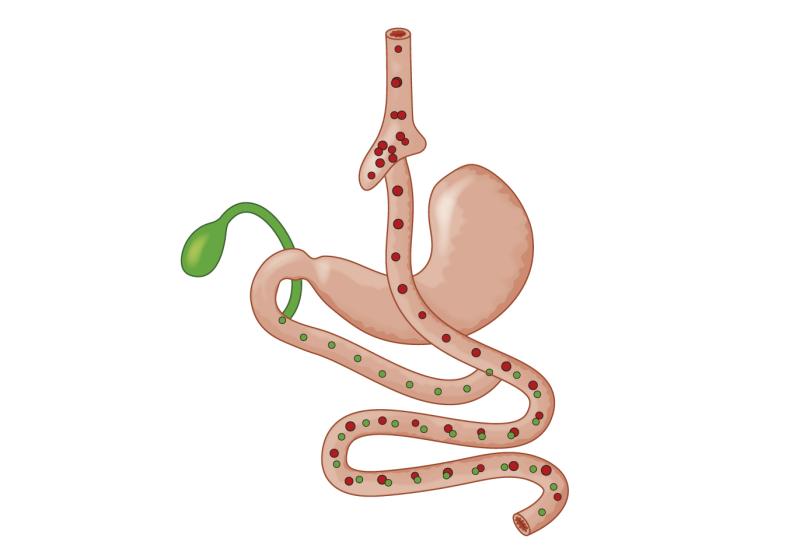
Bariatric surgery lowers the risk of death in the long term compared with medical treatment alone when performed at age >43 years, but not at a younger age, in which the procedure may even increase mortality, as reported in a study. Nevertheless, weight-loss surgery confers benefits for morbidity across all age groups.
Researchers performed a posthoc analysis of two studies, evaluating surgery-related long-term mortality in: (1) the entire cohort (857 surgery patients [163 with diabetes] vs 2,086 controls [512 with diabetes]), (2) the group of patients aged above the mean (>43 years; 427 surgery patients [133 with diabetes] vs 1,054 controls [392 diabetes]), and (3) the group of those aged below the mean (≤43 years; 432 surgery patients [30 with diabetes] vs 1,032 controls [120 diabetes]).
Compared with controls who received standard medical/dietary treatment, individuals who underwent bariatric surgery had lower mortality in the whole cohort (hazard ratio [HR], 0.45, 95 percent confidence interval [CI], 0.33–0.62, p=0.001) and in the older age group (HR, 0.39, 95 percent CI, 0.28–0.56; p=0.001). This mortality benefit was not seen in the younger age group (HR, 0.87, 95 percent CI, 0.42–1.80; p=0.711).
In the older age group, the weight-loss procedure yielded survival gains in both nondiabetic (HR, 0.37, 95 percent CI, 0.23–0.62; p=0.001) and diabetic individuals (HR, 0.45, 95 percent CI, 0.27–0.74; p=0.002). In the younger age group, on the other hand, the procedure did not confer the same benefit in nondiabetic individuals (p=0.371) and even led to increased mortality in diabetic patients (HR, 2.87, 95 percent CI, 0.96–8.56; p=0.058), especially in those aged 33–43 years (HR, 4.99, 95 percent CI, 1.18–21.09; p=0.029).
Furthermore, bariatric surgery reduced the effect of ageing on mortality (HR, 3.76, 95 percent CI, 1.87–7.58; p=0.001), although this benefit was not observed in diabetic patients (p=0.88), further highlighting that diabetes per se has a strong negative effect on survival.